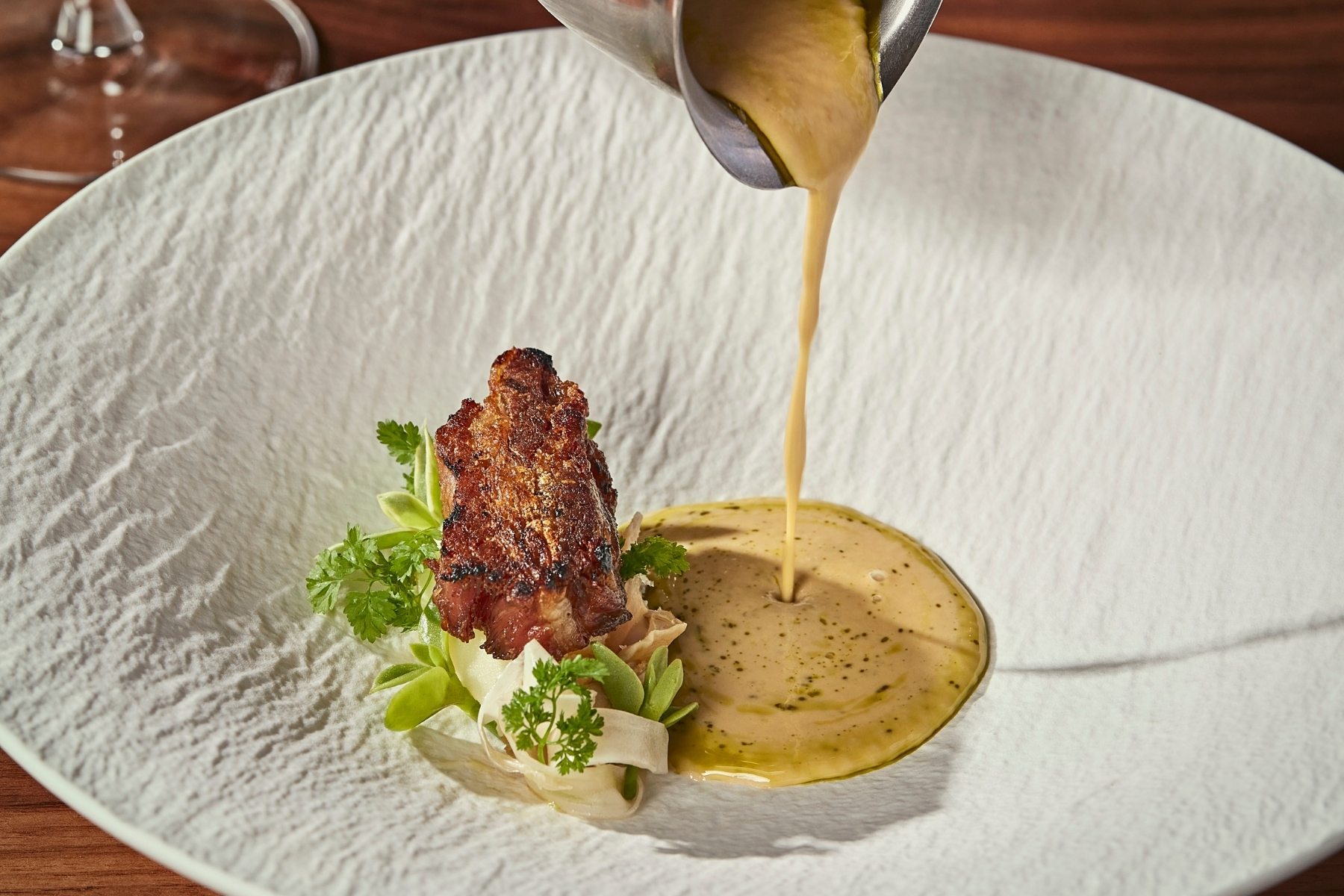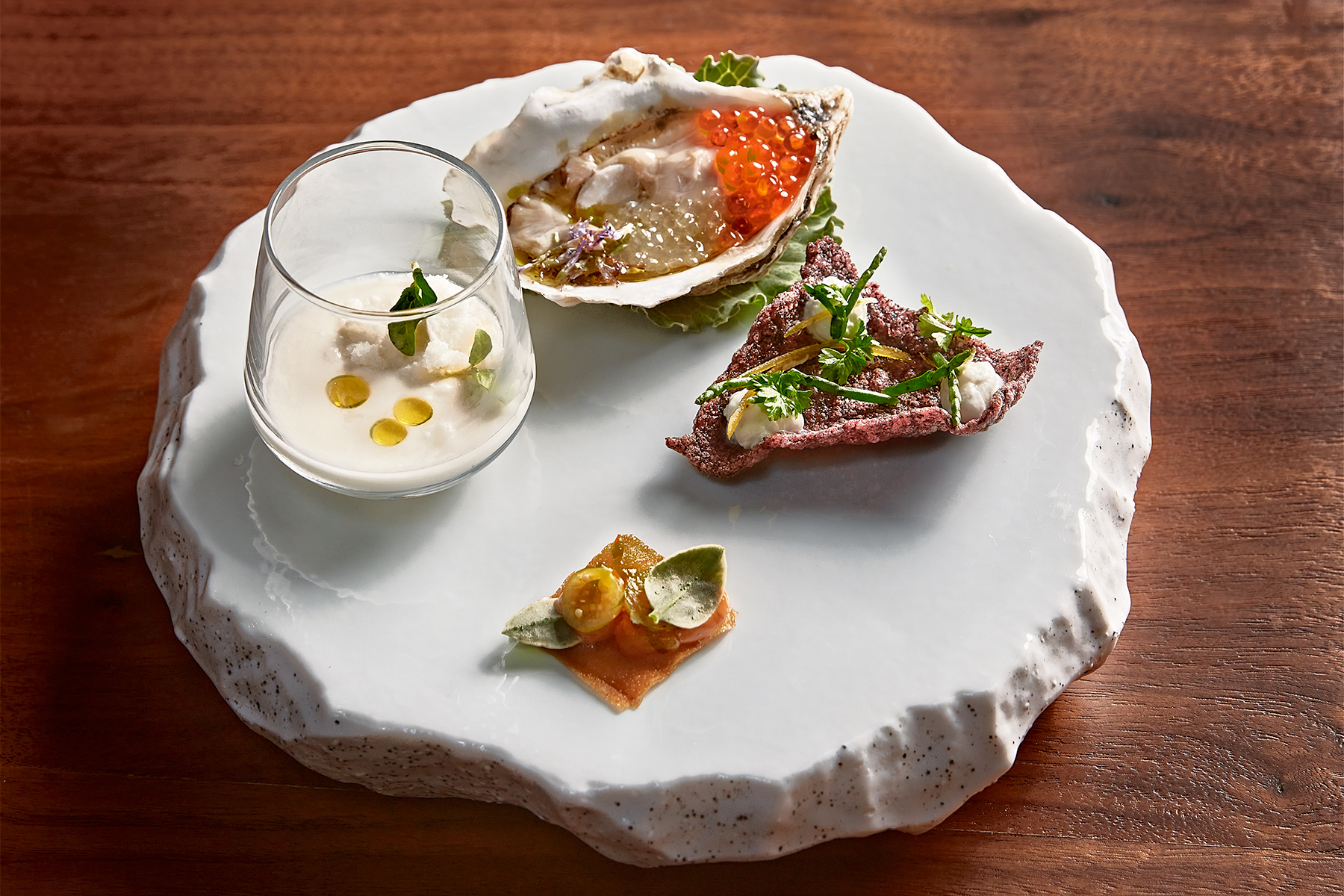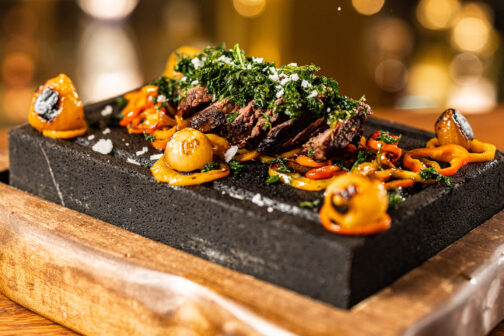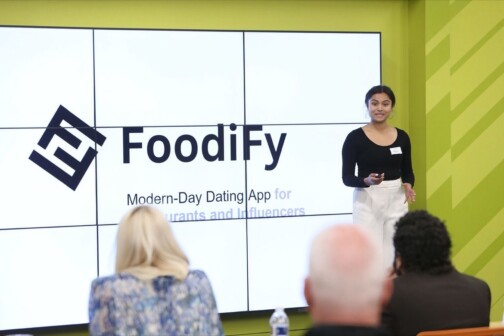Lately I’ve been having private conversations with chefs and diners about how we can encourage a better, more creative food scene in Dallas. A lot of people in the restaurant industry worry that we are trending toward high-dollar mediocrity, away from food served with integrity and artistry. We’ll have future columns on this subject.
The topic roared into headlines on Friday, when Claire Ballor of the Dallas Morning News reported that one of the city’s most prominent new restaurant openings was trading on a potentially false backstory. The 12-course tasting menu at Carte Blanche, Dallas’ most classically French fine-dining meal, is prepared by Casey La Rue. He told members of the media (including me, in an interview he knew I was recording) that he’d worked extensively at some of America’s finest restaurants, including Daniel, Joël Robuchon, Per Se, and Clio.
Ballor found that those restaurants don’t know who he is. They have no records of him as an employee or intern. Carte Blanche’s public reply (now deleted) made no attempt to clarify La Rue’s background or prove his employment claims. Instead, it attacked Ballor as a “keyboard Karen” and described her article as “nonsense.” The reply also included false, gratuitous accusations against me, with my name spelled wrong, even though I was not involved in Ballor’s reporting. La Rue also told Ballor that he worked at the restaurants under a different name that he declined to disclose. There is no way to verify or disprove that explanation, but we know from his sister’s 2005 obituary that his legal name has likely not changed.
But the most distressing part of the story was the public reaction. One comment kept appearing in the replies, and kept sinking me into a deeper cesspit of cynicism.
People kept saying: who cares if he made up his biography?
Just to quote a few examples from the Morning News’ Instagram comments section: “Don’t care as long as the food is good,” “What a BS article – go cover real news!”, “IF THE FOOD IS GOOD, THAT DOES NOT MATTER,” “This is by far the BEST Dallas dining experience!…Don’t give a hot second to this crap drama. Actions speak louder than words. There are three sides to every story,” “Let’s support people that invest wholeheartedly in this city, not trash them down,” “The problem is what?”, “Why are we worried about this if the food and service is still that good?”
If you’re in an argument with somebody, and you need to argue that truth matters because they don’t think truth matters, you’re going to lose that argument. There’s no way out of that. They went to the wrong kindergarten and there is no convincing them. I learned that in 2016.

But—and here I sigh, knowing this may be futile—there are at least four reasons why we should care. (Disclaimer: since truth matters to me, I want to know if La Rue really did all the things he said. If he has proof, I’ll publish it. And if he grows into a great chef, I want to lead the choir of praise. I hope he is an honest chef, but the moral of this story is true whether he is or not.)
First: Carte Blanche used its alleged deceit to charge sky-high prices. When La Rue came to Dallas in 2019, nobody knew who he was. Nevertheless, he immediately began charging $175 a seat for pop-up dinners.
Why would anybody go to the mysterious stranger from New Hampshire’s costly private parties, as expensive as any restaurant in Dallas at the time? Because he used his resume to help establish his name. His initial Facebook DM inviting me to a media dinner name-checked Per Se and Robuchon, describing his goals this way: “Imagine you went to Le Bernardin and Eric Ripert personally made you dinner.” I would guess many of the customers at his early pop-up dinners heard similar claims about his backstory. (I did not reply or attend.)
When Carte Blanche opened, its Tock page cited La Rue’s past as a reason to book. “Husband and wife team Casey & Amy La Rue have worked in some of the countries [sic] best Michelin starred restaurants including Daniel, Per Se & Joel Robuchon. Combining those experiences to bring the Carte Blanche restaurant. [sic]”
La Rue’s biography was eventually removed, but the cost of his dinner keeps rising. Including mandatory taxes and fees, Carte Blanche charges $251.21 per guest, without alcohol or tea or coffee. No refunds allowed. No cancellations allowed. Only a “one-time rescheduling” is permitted.
Who has $250 to spend on a mystery chef to see if he’s good? For a single Texan, that can be a whole month of groceries.
Second: it’s not just about customers. Former Carte Blanche employees told Ballor they felt duped because they had quit other jobs to work with, and learn from, a chef who was so experienced and distinguished. They thought he could be a mentor or advance their career. The “who cares” customers are seeing things only from their own viewpoint, not those of the employees.
Third: do we believe that someone who would fib about one thing will be truthful about everything else? Are there other possible problems at Carte Blanche? If some forms of dishonesty are okay but others are not, how do you decide that? Which lies would matter? Can a chef say, do, and serve anything if it makes us feel good?
Which brings me to the last reason to care, the one that brings us back to Dallas’ food scene at large. We are in a moment where many diners conflate restaurants that are good with restaurants that make them feel good. Restaurants can serve an inferior product if the experience is flattering, glamorous-looking, easy to share on Instagram, or geared more toward fluffing the customer’s ego than it is to serving food. These are places where people pay for a mood, not a meal; places where they indulge their pride, not their palates.
Carte Blanche is a perfect example of a flattery-based restaurant. La Rue’s food can be very good. But during my visits for an April review in the Morning News, servers bragged nonstop about the exclusive, rare ingredients to make my table feel more pampered. At one point they congratulated us on trying a“highly allocated cheese.”
Last week’s incident speaks to our values as a city. Do we want to support chefs who work with integrity, or not? Do values help to make food “good,” or do they not matter to quality?
When hundreds of people react to the Morning News’ Carte Blanche revelations by asking, “So what?” they let the world know that Dallas is a mark. They are telling us that they value prestige over principle and will spend hundreds of dollars to swallow bullshit if the bullshit makes them feel good. For all the hardworking chefs in town who want to serve up true creativity and honest cooking, that message must be crushingly sad.
Get the SideDish Newsletter
Author






